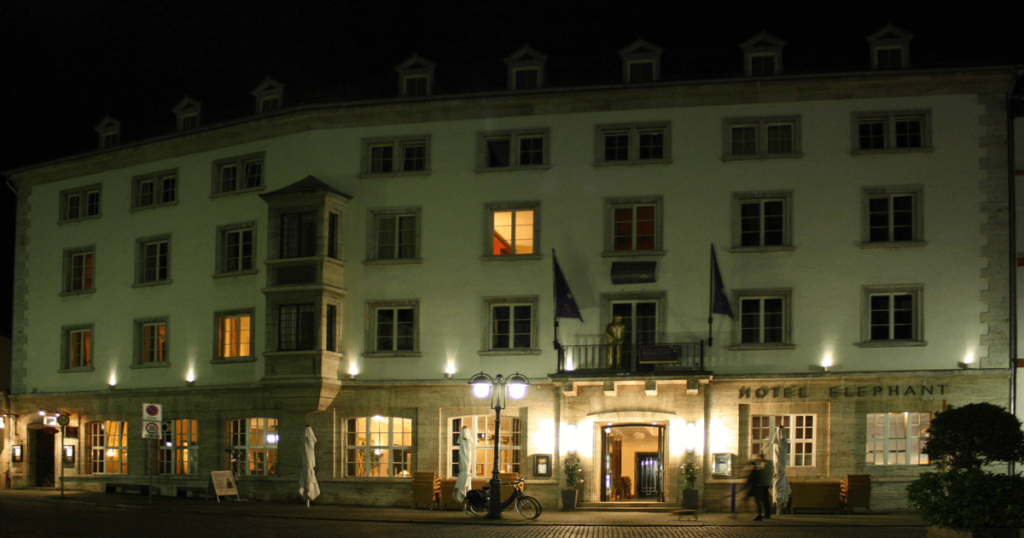
Over the weekend, a couple of friends and I took a train from Berlin to the Thuringian city of Weimar, which lent its name to the short-lived German republic that preceded the rise of fascism. The city drips with so much history and culture that it can be difficult to make sense of it all. Having checked into the Hotel Elephant, in the very heart of the old town and in continuous operation since 1696 (the guestbook includes Tolstoy, Hans Christian Anderson, and Thomas Mann), we set off for Goethe’s spacious residence. It’s preserved much as he left it, featuring a massive trove of books, Renaissance busts and oil paintings, lion skulls and rhinoceros jaws. His friend, the playwright Friedrich Schiller, lived a stone’s throw away, and five minutes in the opposite direction is the apartment once occupied by the Hungarian composer Franz Liszt. It looks across the street at the contemporary iteration of the Bauhaus, which had been founded in Weimar but was forced to relocate first to Dessau and then to Berlin with rise of National Socialism, which deemed the school “Bolshevik.”
The most famous name in the Elephant’s guestbook, of course, is Adolf Hitler. He loved to stay there, and the Nazis often paraded through the market square out front. I woke up in the night thinking of this. The next day, before returning to Berlin, we stopped at Buchenwald, which is a startling 10-minute drive away. The descent from the heights of civilization into the absolute depths of barbarity never felt so obvious or swift to me. But I also felt something a lot like optimism standing there, a descendent of slaves, with my friends, two Eastern European Jews. There is a lesson here that I want to hold onto in this season of despair.

